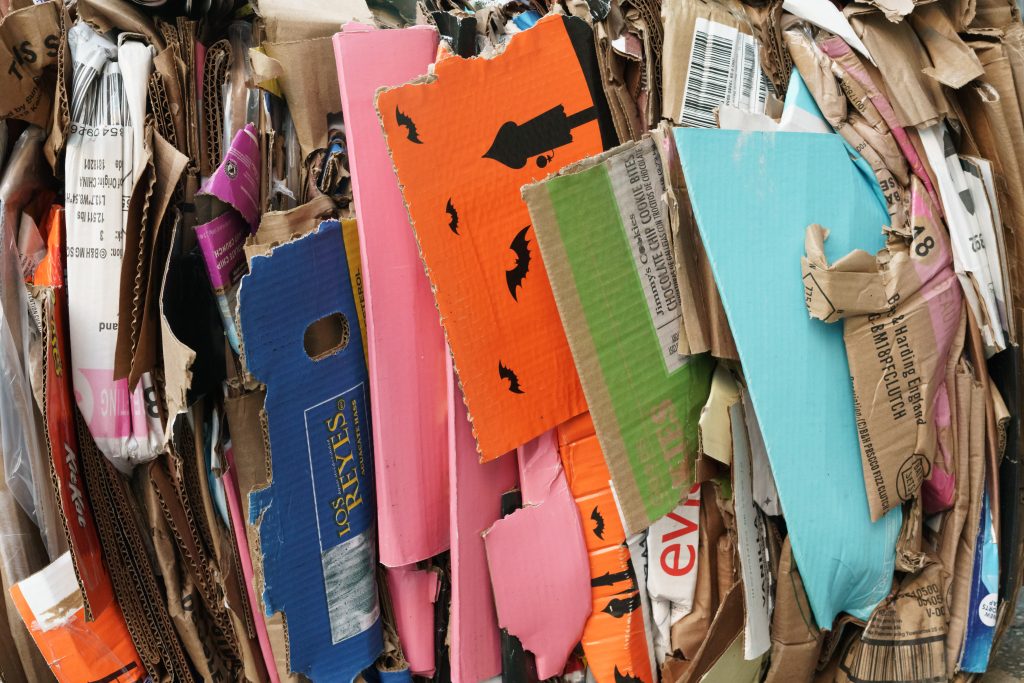Understanding the Pros and Cons of Recycled Packaging
By: Jane Marsh
Everyone outside the energy, manufacturing and shipping industries is curious about the pros and cons of recycled packaging. Environmental, extended producer responsibility and corporate social responsibility frameworks influenced by government legislation and regulatory compliance are pushing its usages and sales.
Unpacking the legitimacy behind the intention and execution is vital to exposing potential greenwashing and stealthy adverse environmental impacts.
Pro — It Incentivizes a Boost in Recycling Infrastructure
Recycling infrastructure requires external influence to resolve its primary issues in efficiency and sustainability. Lithium-ion batteries and construction materials are a few examples of industries under pressure to produce quickly to meet demand with little concern over materials’ end of life.
It discourages sectors from investing time and resources into bolstering recycling infrastructure when it is not fiscally advantageous over producing more products. Frameworks and mandates for recycling packaging and incorporating it into products provide accountability.
Creating jobs is another boon for the push, forcing the development of green talent worldwide. Eco-aware skills are essential for envisioning process discovery, reducing the costs and energy expenditure inherent to the modern recycling process that needs immediate attention. Paying more attention to infrastructure streamlines the process to improve what it accepts and sorts while producing more durable, high-quality recycled products.
Con — Recycling Is Not a Comprehensive Solution
Recycling infrastructure needs prioritizing to solve its numerous branching sustainability issues. However, recycling is not the only answer to reversing the climate crisis. More limelight on recycling diverts attention from other eco-conscious focus areas, like ocean cleanups, loss of biodiversity or grid modernization.
Striking a balance requires advocates of recycled packaging to divide attention responsibly. Promoting recycled packaging enhancements is vital, but so are other green initiatives. Recycled packaging is less impactful to big-picture climate change than renewable energy or electrification, but it does not diminish its relevance.
Pro — Packaging Options Are Versatile and Malleable
Boosting infrastructure revamps machinery and materials to have more tensile strength for versatile packaging purposes. Numerous startups and researchers found ways to repurpose old packaging materials or incorporate them with renewable alternatives to increase resilience. Forging circular economic methods for cardboard, plastic, glass, aluminum, and other metals are standard.
Recycled packaging makers can experiment with flexible options as well for unique compositions:
● Rice husks
● Mushrooms
● Bamboo
● Gelatin
Biodegradable polymers like polybutylene adipate terephthalate. Using hybrid solutions can potentially solve other recycled packaging issues. Issues include cross-contamination with melting down recycled plastic or being unable to recycle packaging because of dyes. Recycled packaging users must tackle reducing waste for intentional implementation across the value chain.
Con — Recycled Packaging Ads Invite Greenwashing
A company promoting that it uses recycled packaging is a slippery slope. It isn’t easy to discern the nuances behind the claim. For example, an organization may use biopolymers to help recycled packaging efforts but not disclose how they jeopardize animal habitats with unethical deforestation. Sustainable packaging efforts may happen in one section of the supply chain but not the whole.
Implementing recycled packaging cannot move the footprint to another part of the business. Everyone must tread carefully when researching enterprises for packaging practices. Companies must do their due diligence in following the advice of regulatory bodies and following compliance that adheres to internal green objectives to prevent greenwashing.
Pro — It Catalyzes Regulation and Research
Enforcing mandatory recycled packaging is a challenge to audit and standardize, such as the universality of disposal indicators to help companies and consumers know how to take care of materials. Additionally, research and development have hurdles, such as funding and grabbing the attention of lawmakers once it is complete with valuable insights. It encourages widespread recycled packaging and forces collaboration to overcome challenges that translate as excuses for hindered advancement.
Changes are happening. In July, Taiwan’s EPA started requiring e-commerce outfits to include 90% naturally dyed recycled paper and 25% recycled plastic in packaging operations.
European extended producer responsibilities charge fees for places that do not use recycled packaging. China is attempting to ban plastic waste imports to work on plastic recycled packaging progress. Worldwide goals include improved structure to prevent leakage
and tear, making it a viable commercial option.
Recycled Packaging Is Layered but Necessary
Obstacles are inherent to any sustainable goal. Recycled packaging is necessary for every industry in conjunction with other environmental efforts. It reframes cultural mindsets and expectations for how everyone handles their resources.
Additionally, it is an easily understandable consumer-focused issue that garners universal buy-in from citizens to pressure corporations. Businesses must adopt authentic recycled packaging practices in their sustainability frameworks to avoid controversy and promote value-driven green progress.
Jane Marsh
Editor-in-Chief at Environment.com
Email jane@environment.co
Website https://environment.co/




